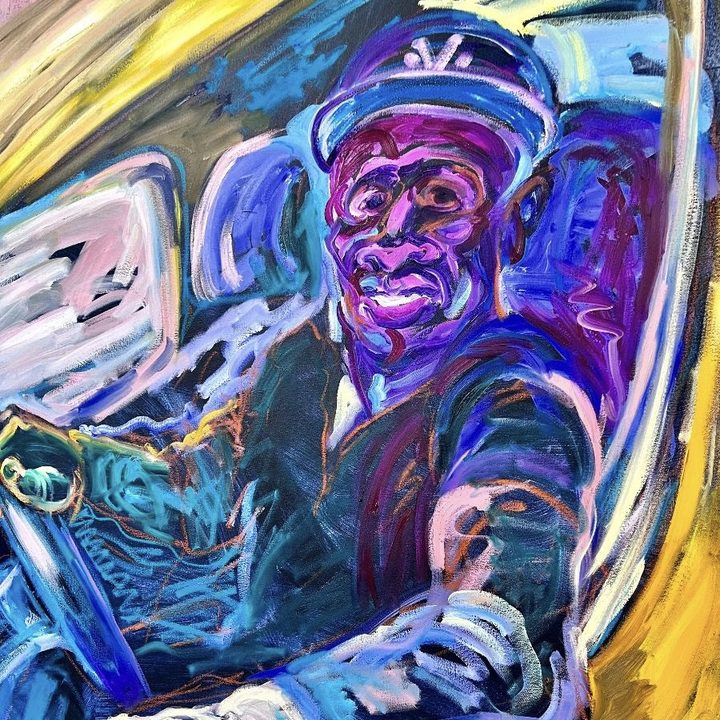“Everyday Heroes,” an exhibition of new paintings and photographs by artist Katya Leonovich, will be on view at Leonovich Gallery from October 4-November 13, 2023. A catalogue with an essay by exhibition curator Kathleen Cullen will be available.
The exhibition’s theme is work by men in its many manifestations. The twenty-two portraits of cleaners, construction workers, barbers, taxi drivers, electricians, policemen, firemen and waiters, noticed by Leonovich in her New York neighborhood, are painted from photographs and successfully capture a moment in New York City urban life. In a recent article in The Atlantic, Spencer Kornblauer says there is currently a real desire for working class heroes and authenticity in art as exemplified by Oliver Anthony’s hit song “Rich Men North of Richmond.”
Through a female lens, Leonovich’s garish, bold, confrontational, confident and empathetic paintings, skillfully reveal the essential aspects of her male subjects’ humanity and diversity. While not overtly sexual, the paintings have symbolic allusions to sex and desire. “I like men, I prefer to paint them,” says Leonovich.
Leonovich is influenced by the figurative explosion of Renaissance paintings and the German Neue Sachlichkeit or New Objectivity painters and their interest for a return to daily reality within art. Her portrait painting process starts with an encounter with a prospective subject followed by photographs taken with her iPhone. With picture in hand, Leonovich gets to work. She paints very quickly, sometimes one painting a day, hands and faces are key. She found her groove after finishing the first portrait when she realized that she could make her paintings as fresh as a sketches, almost like action paintings. Leonovich uses a lot of oil paint to place light upon dark creating an otherworldly light. Tapping into the “ugly painting” conversation, Leonovich’s portraits are good examples of aesthetic provocation with her aggressive brushwork and warped figures.
Leonovich’s portraits are not satirical nor do they pass moral judgement. They are portals into the personal worlds of people we all observe but rarely get to know. They are explorations of portrait paintings’ possibilities.






